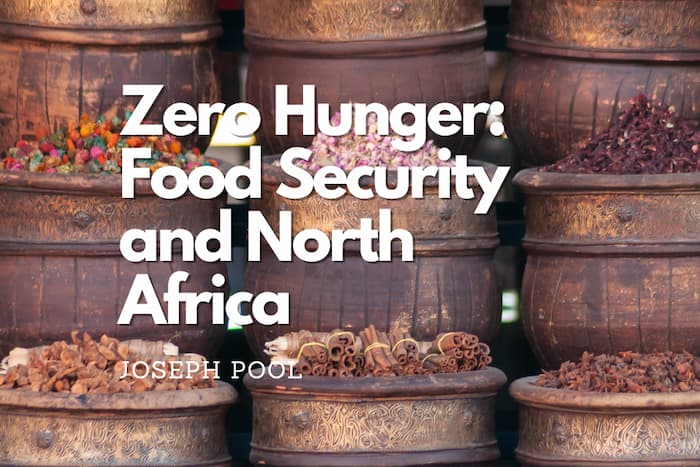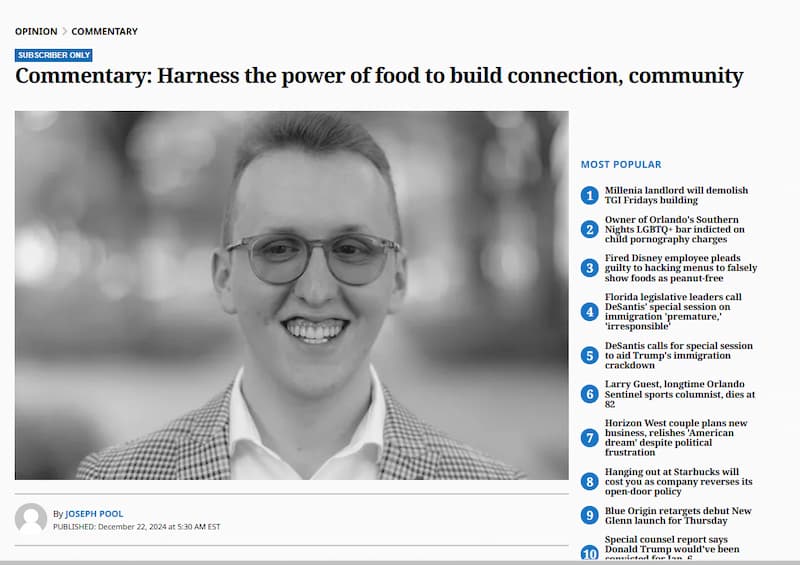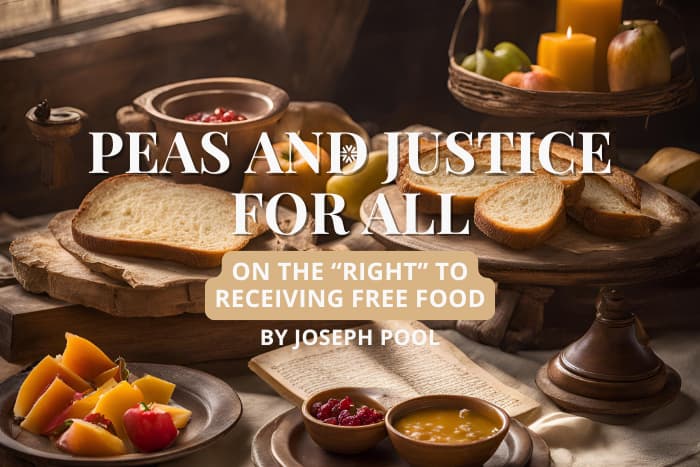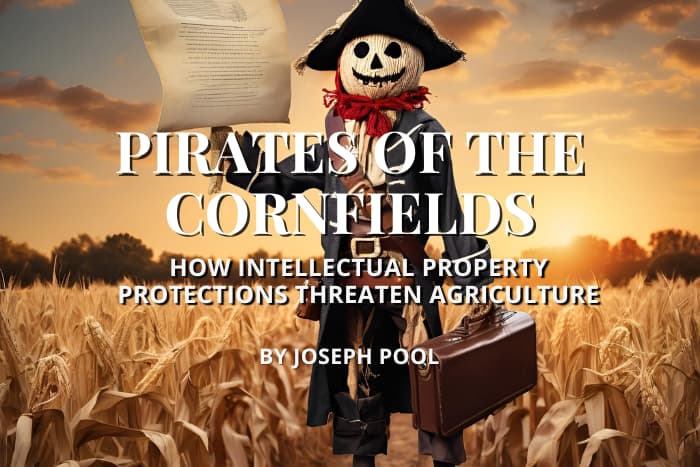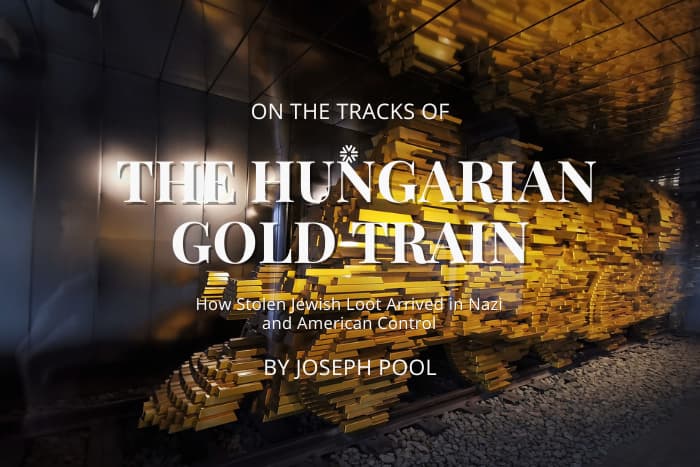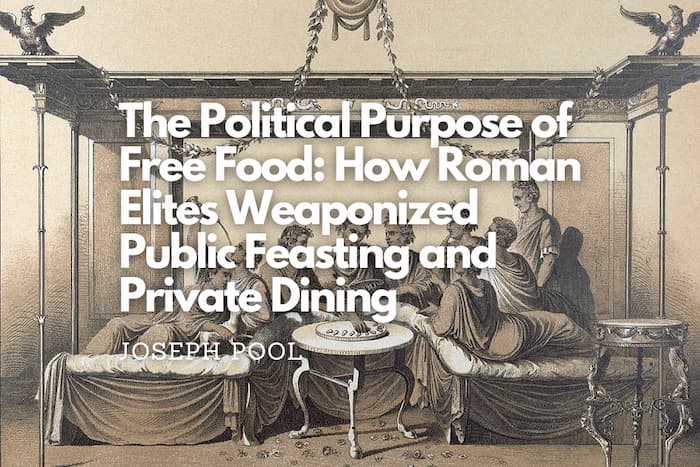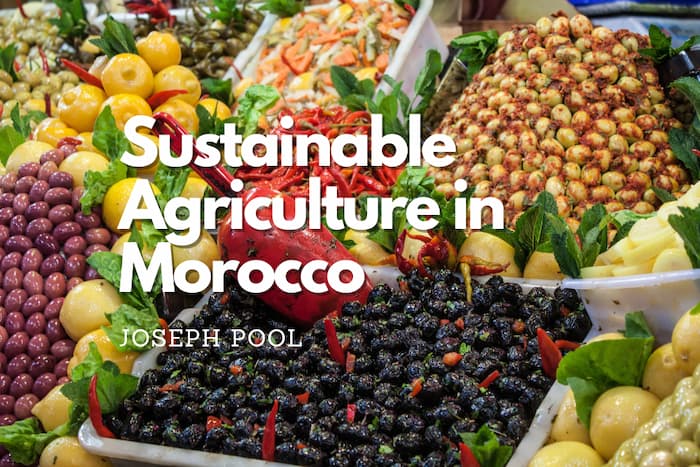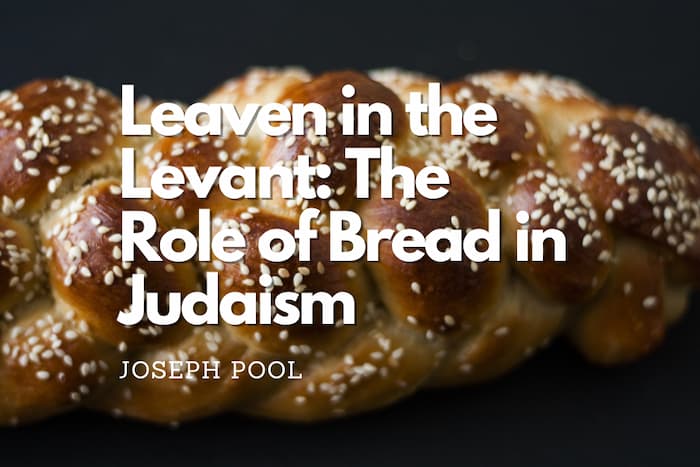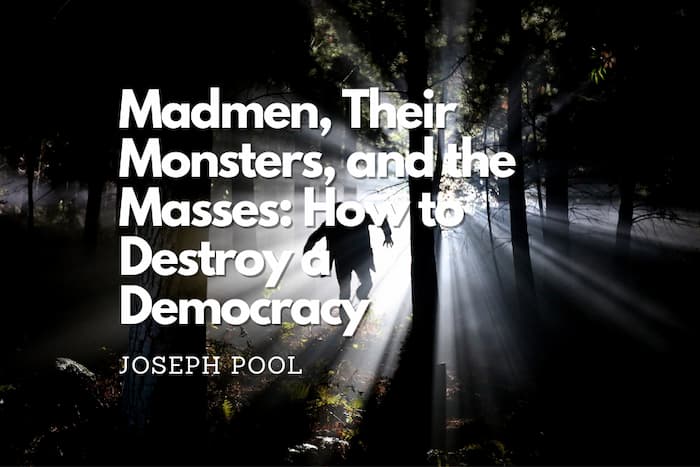Joseph Pool
INTRODUCTION
In Morocco and throughout much of the North African region, food has served as more than a mere tool for survival; it has connected people and aided over the centuries in ensuring cultural preservation. The historic and cultural importance of these dishes unites the countries of North Africa with a common purpose. In December of 2020, they were successful in petitioning UNESCO to add couscous to its “Intangible Cultural Heritage” list.[1] However, the access that the people of Morocco and the larger Maghreb have to food is under growing environmental and economic threat. This puts the welfare and wellbeing of millions of people in the region at risk, presenting a potent challenge to the United Nations’ Sustainable Development Goal of “Zero Hunger.” Due to a worsening climate and worldwide crises, food security in North Africa is in the midst of a colossal crisis. However, innovation in agricultural technology and the introduction of new crops to the region may prove to be a salve for this situation. Using the United Nations’ Sustainable Development Goal #2: Zero Hunger as a template, this paper will seek to examine the problem of food security in the Maghreb. Additionally, it will attempt to explore the ways in which Morocco and other actors in the North African region are attempting to adapt to and overcome these circumstances.
CONTEXT AND CONFLICT
To understand the need for food security in this region and the larger world, one must first understand what exactly the goal entails. According to the International Food Policy Research Institute, “Food security, as defined by the United Nations’ Committee on World Food Security, means that all people, at all times, have physical, social, and economic access to sufficient, safe, and nutritious food that meets their food preferences and dietary needs for an active and healthy life.[2]” This pertinent goal of preventing hunger and ensuring universal access to nourishing and sustainable food is key to the United Nations’ plan of “Zero Hunger.” Unfortunately, in North Africa, that goal post appears further and further away. Per the Middle East Institute, “the three-year average for moderate to severe food insecurity in Morocco from 2018 to 2020 stands at 28%.[3]” Recent droughts and hotter year-over-year temperature has prevented many crops from growing or producing to their full capacity. Tanchum from the Middle East Institute continues, “At the core of this fragility is the failure to implement adequate measures to address the impact of increased water scarcity and debilitating climate change.[4]” The worsening water crisis seen across the region is linked unquestionably to climate change and the region’s frequently less temperate temperatures. Adding on to the numerous issues presented by the environment, many more have been brought about due to a series of economic and political issues.
According to Rahhou, agriculture and food production play a crucial role in Morocco, both for its economy and sustainability. He states, “Of Morocco’s 11 million labor force … agriculture comes second as it employs 30.8% of the Moroccan labor force.[5]” This is important to note as choices made by Moroccan authorities, whether outsourcing more farming or expanding the domestic industry, would directly affect the lives of at least a few million people. Thus, these decisions must be carefully weighed by the relevant experts who must then take into account the impact on these choices on the economy and job market of Morocco and the wider Maghreb. One of these choices was an over-reliance on importing crops and grains from other nations. Tanchum expands, “The Maghreb’s main vulnerability is its high dependency on cereal grain imports, both for human consumption and for animal feed.[6]” Exacerbated by the war in Ukraine and poor crop seasons, this reliance on other countries outside of the region to provide some of the main food sources has proven to be costly. Thus, it is imperative that within Morocco, more domestic solutions are examined.
SOLUTIONS AND SUSTENANCE
The simple solution to the issue of an over-reliance on importing food is to increase production domestically. While this would alleviate recent issues of hunger and lessen the impact of supply chain issues on people finding a meal, it would not work long term to address the worsening climate. According to the Agence France – Presse, “At 600 cubic meters of water annually per capita, Morocco is already well below the water scarcity threshold of 1,700 cubic meters per capita per year … In the 1960s, water availability was four times higher — at 2,600 cubic meters.[7]” Thus, due to these recent droughts, it is crucial that Morocco finds new ways of growing produce, especially crops that could adapt to the harsher climates and still provide people with nourishment. One such crop, according to Hirich et al, may be quinoa. Along with other crops, quinoa, despite not being native to the region, has been found to be extremely drought-resilient and suitable for the soil of the Maghreb[8]. It is high in nutrients and is capable of being produced cheaply and in mass quantities. After more examination, quinoa could possibly go a long way in ensuring food security in the region and working towards the goal of “Zero Hunger.” As stated in the Hirch source, research so far points to the idea that quinoa could potentially be a major part of efforts to improve food security and work towards the Kingdom of Morocco’s goal of guaranteeing food for everyone, marking a major stride towards achieving SDG #2.
Another way in which the gap between food needs and food capabilities may be bridged is through different innovations in farming technology. This can include ways to boost production, ways to grow more crops, and ways to farm in areas typically not considered farmable. According to the E3S Web of Conferences, one such method for achieving this may be vertical farming[9]. In this type of farming, crops are stacked on multi-story-high racks instead of spread out across acres. Due to this setup, it is possible to grow more food using less land area. Implementing vertical farming technology on existing farmland would conceivably make it possible to more than triple the food output of a certain area. SDG #2 can become a much more attainable goal if land does not present as much of a barrier as it currently does. Additionally, the use of hydroponics or alternative growing methods would be able to replicate any environment desired, maximizing crop yield and thus providing more people with more food. While still in development and not fully fleshed out, a combination of vertical farming and technology such as hydroponics indicates signs of usefulness, especially in the Maghreb and other environmentally-challenged regions of the world. Combined with the introduction of quinoa and other crops, it is very possible that the North African region, with Morocco and its policies at the helm, can make strides in achieving SDG #2: Zero Hunger.
ACHIEVING THESE AIMS
To promote these ideas and proactively work towards these goals, governments such as that of Morocco must rely on international and non-governmental organizations. One such organization working closely with Morocco is the High Atlas Foundation. Describing their impact in Morocco’s agricultural sector, HAF explains, “[Our] production of fruit trees for Moroccan families, schools, and communities not only benefits their livelihoods and environments but also helps to build highly productive partnerships between the people, their government, and various intercultural groups.[10]” HAF, and similar groups, take a localized approach by working closely with Moroccan and Berber communities to start community orchards and gardens. They also partner with the United Nations to get accurate data and information about new technology, such as vertical farming and newly introduced crops, such as quinoa. Only through collaboration between the governments, people, and organizations throughout the Maghreb can this food crisis be addressed. With organizations like HAF at the helm, the UN’s dauntless goal of “Zero Hunger” may be achievable in the near future. At a minimum, the dangers presented by global supply chains and worsening climate crises may be addressed and remedied within the region.
BIBLIOGRAPHY
Allouche, Yasmina. “For the love of couscous: North Africa’s favourite dish added to UNESCO list,” Middle East Eye, December 17, 2020. https://www.middleeasteye.net/discover/couscous-added-unesco-heritage-list.
HAF, “Organic Agriculture.” High Atlas Foundation. Accessed December, 2022. https://highatlasfoundation.org/project/organic-agriculture/
Hirich, Abdelaziz, Sifeddine Rafik, Mohamed Rahmani, Amira Fetouab, Fatima Azaykou, Kaoutar Filali, Hayatullah Ahmadzai, Younes Jnaoui, Aziz Soulaimani, Mariam Moussafir, Mohamed El Gharous, Salwa Karboune, Abdelaziz Sbai, and Redouane Choukr-Allah. “Development of Quinoa Value Chain to Improve Food and Nutritional Security in Rural Communities in Rehamna, Morocco: Lessons Learned and Perspectives.” Plants (Basel) 10, no. 2 (2021): 301.
IFPRI. “Topic: Food Security,” International Food Policy Research Institute, Accessed December, 2022. https://www.ifpri.org/topic/food-security
Rahhou, Jihane. “Agriculture, Services Sectors Hold Highest Employment Rates in Morocco,” Morocco World News, August 4, 2022. https://www.moroccoworldnews.com/2022/08/350622/agriculture-services-sectors-hold-highest-employment-rates-in-morocco
Rharrhour, Haytam, Fatima Wariaghli, Simon Goddek, Mohamed Sadik, Aziz El Moujtahid, Hassan Nhhala, and Ahmed Yahyaoui. “Towards Sustainable Food Productions in Morocco: Aquaponics.” E3S Web of Conferences 337 (2022): 3004.
Tanchum, Michael. “The Fragile State of Food Security in the Maghreb: Implication of the 2021 Cereal Grains Crisis in Tunisia, Algeria, and Morocco,” Middle East Institute, November 9, 2021. https://www.mei.edu/publications/fragile-state-food-security-maghreb-implication-2021-cereal-grains-crisis-tunisia
VOA. “Drought Tightens Its Grip on Morocco,” VOA (Agence France – Presse), August 14, 2022). https://www.voanews.com/a/drought-tightens-its-grip-on-morocco/6700790.html.
-
Yasmina Allouche, “For the love of couscous: North Africa’s favourite dish added to UNESCO list,” Middle East Eye, December 17, 2020. ↑
-
IFPRI, “Topic: Food Security,” International Food Policy Research Institute, Accessed December, 2022. ↑
-
Michael Tanchum, “The Fragile State of Food Security in the Maghreb: Implication of the 2021 Cereal Grains Crisis in Tunisia, Algeria, and Morocco,” Middle East Institute, November 9, 2021. ↑
-
Ibid ↑
-
Jihane Rahhou, “Agriculture, Services Sectors Hold Highest Employment Rates in Morocco,” Morocco World News, August 4, 2022. ↑
-
Tanchum, “Implications,” November 9, 2021 ↑
-
VOA, “Drought Tightens Its Grip on Morocco,” VOA (Agence France – Presse), August 14, 2022 ↑
-
Abdelaziz Hirich, et al., “Development of Quinoa Value Chain to Improve Food and Nutritional Security in Rural Communities in Rehamna, Morocco: Lessons Learned and Perspectives,” Plants, 301. ↑
-
Haytam Rharrhour, “Towards Sustainable Food Productions in Morocco: Aquaponics,” E35 Web of Conferences 337, 3004. ↑
-
HAF, “Organic Agriculture.” High Atlas Foundation. ↑
